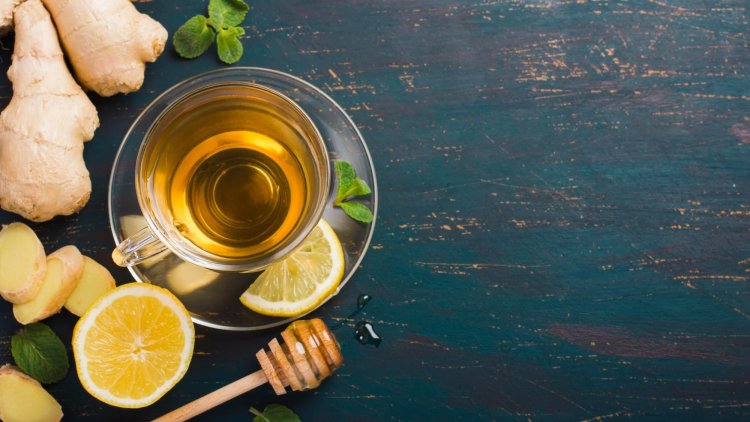These teas help with coughs, flu, and colds
Teas are great allies of immunity that will not only keep us warm throughout the fall and winter but will also help the herbs, strengthen and protect the body

These two types of tea are especially good for fighting respiratory infections.
Ginger
Ginger (Zingiber officinale Zingiberaceae) gives a spicy, aromatic taste, it is rich in aromatic essential oils that give it its characteristic taste and aroma. Its oil contains sesquiterpenes, zingiberene, due to which ginger has an anti-inflammatory effect. It contains monoterpenes and aldehydes and acts against cold viruses, and has antiseptic properties, helps with coughing, helps with sweating, and soothes fever.
It has a beneficial effect on lowering blood pressure, lowering blood sugar levels and cholesterol levels. Ginger tea has a calming effect on the first signs of colds and flu, and it is easy to prepare.
How to prepare ginger tea?
Add one teaspoon of freshly grated ginger to a cup of boiling water, cover, and leave to sit for five to ten minutes. Strain the tea and leave to cool. If you wish, you can add a teaspoon of homemade honey and freshly squeezed lemon juice to the lukewarm tea.
Drink two cups of tea a day. Although ginger has no harmful effects on health, caution is definitely needed in people taking anticoagulants. Children can drink mild ginger tea in moderation, and it is recommended to combine this tea with apple or forest fruit teas with the addition of homemade honey.
Marshmallow
It grows throughout Europe and is characterized by thick stems, hairy, fibrous leaves, and light purple flowers, as well as fruits with one seed. Leaves and flowers rich in mucus are used for medicinal purposes. Marshmallow contains anthocyanins, polysaccharides, flavonoids and has a calming effect on the mucous membranes and bronchi. It is used to soothe coughs and bronchial diseases. Due to the content of mucus, marshmallow has anti-inflammatory properties and is rich in polysaccharides responsible for strengthening the immune system. The leaves contain vitamin C, beta-carotene, and iron as good allies of immunity.
How is marshmallow tea made?
Make marshmallow tea by pouring two to three decilitres of lukewarm water over two teaspoons of marshmallow root and letting it sit for at least two hours to excrete mucus. You can additionally heat the tea, strain it and, if necessary, sweeten it with a teaspoon of homemade honey.
You can also add 1.5 g of dried leaves and flowers to a cup of boiling water, cover, and let it boil for five minutes. Strain the tea and leave to cool. Add a teaspoon of homemade honey and freshly squeezed lemon juice to the lukewarm tea if desired. Drink one to three cups of tea a day. It can cause allergic reactions in sensitive people, and it is not recommended for pregnant or breastfeeding women.




























